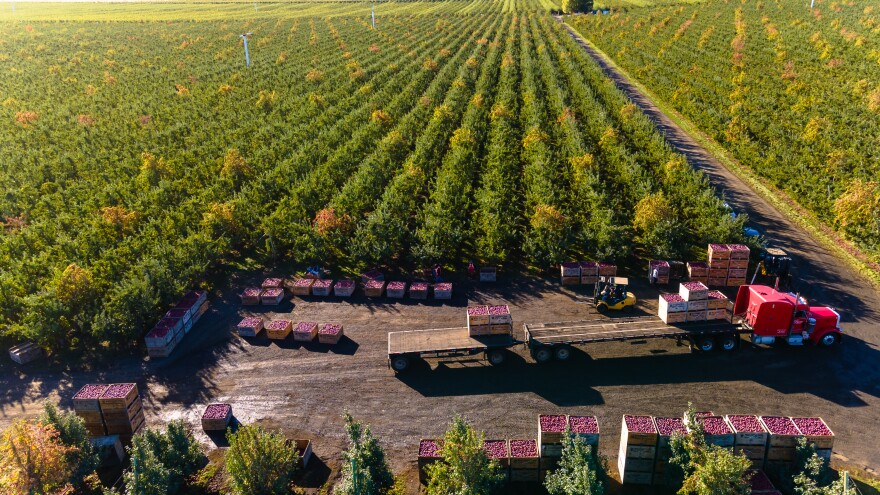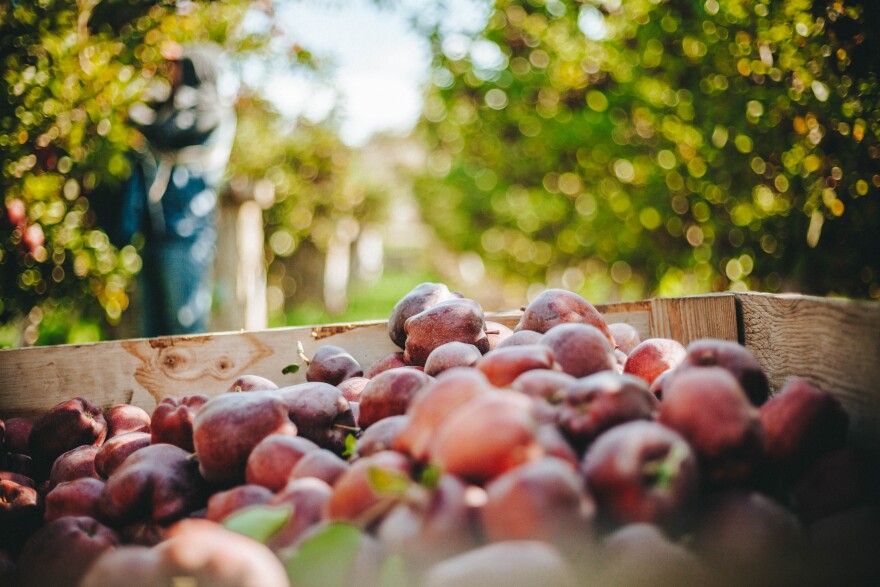Customers in India love Red Delicious apples. But many Red Delicious growers in the Northwest run legacy orchards — smaller family farms with less ability to plant all new trees or varieties.
Red Delicious apples have become less popular in the US, with newer varieties like Opal, Juicy and the fresh Cosmic Crisp putting Red Delicious growers at a disadvantage.
But for decades, Red Delicious growers found a fine home abroad – India. In 2017, Washington apple exports hit a high of $120 million dollars. But a steel and aluminum tariff slapped on India by the Trump Administration in 2018 – under Section 232 of the Trade Expansion Act – caused the Indian government to put an additional 20 percent tax on U.S. apple imports. That sliced the Northwest apple exports to India down to just $3 million.
Now, Washington state's full congressional delegation is asking the federal government for help.
About a dozen politicians signed on to a letter requesting help from the U.S. Trade Representative and the Secretary of Commerce to remove tariffs by India on Washington state apples. The letter comes as there’s an important Trade Policy Forum with India this week.
Mark Powers is the president of the Northwest Horticultural Council in Yakima.
“What used to be almost exclusively our market in India that we developed, now belongs to other nations that are exporting to India,” Powers said.
Powers says now around 20% of Washington’s apples are exported across the world, that used to be closer to 30%.

Short year
This year is a short apple year with just about 102 million, 40-pound boxes harvested, says Todd Fryhover, the president of the Washington Apple Commission. So the India problem is sidelined a bit because there is less fruit to export overall. Still, many Northwest growers dealt with hail this past spring, extreme summer heat, shipping problems at the ports, increased shipping cost inland, tariffs in export countries and even potential phytosanitary restrictions in Japan. It all adds up to a crunch for apple growers with less capital to adjust to quickly changing labor situations, science, varieties and agri-business climate that is quickly consolidating, Fryhover said. Plus, he said, there is a lot of competition into India by foreign competitors like China, Italy and Turkey.
By death, or developer
Congresswoman Kim Schrier, a Democrat with Washington’s 8th District, says it’s hard for family Red Delicious apple growers in places like Chelan and Wenatchee to weather both the poor weather and a shut-down export market.
This is the lowest Red Delicious crop since 1968, the Congressional delegation wrote in a press release. Corporate, out-of-state entities are acquiring and consolidating larger operations, while smaller farms simply go out of business.
“Now they face pulling out their whole crop and planting like Honey Crisp, or selling to a developer,” Schrier says. “Were these tariffs not in place, we could save these family farms.”


